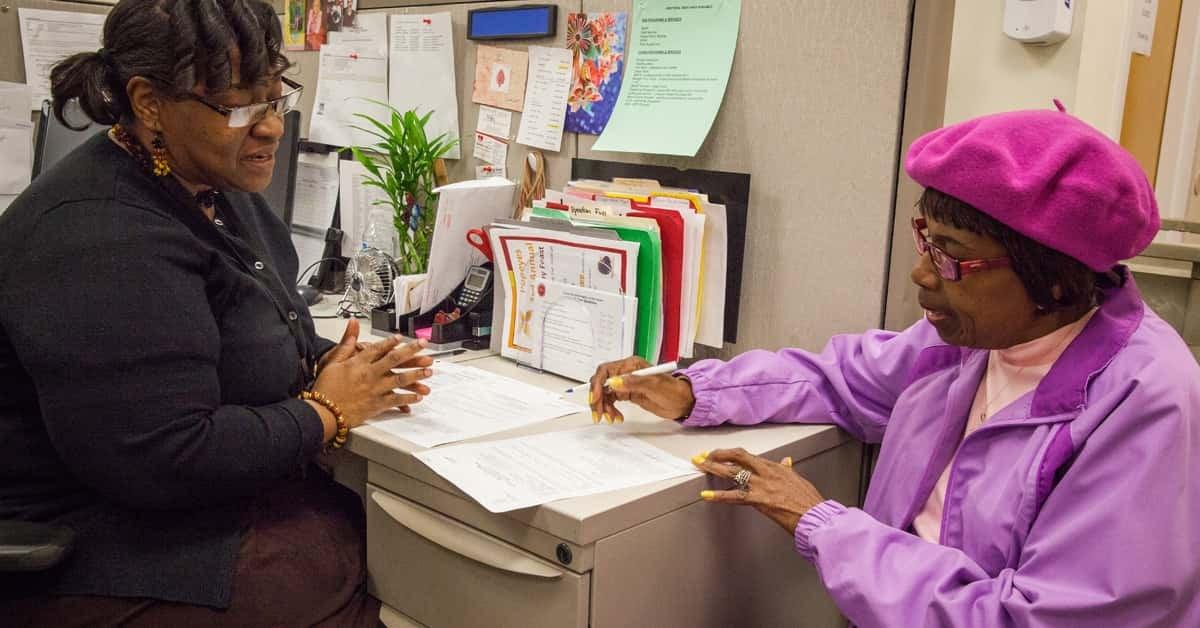
These days, the cost of living is quickly outpacing household budgets. And this reality can be especially unsettling for those of us trying to get by on a modest income. If you're finding it harder and harder to afford groceries, pay for your medications, or keep your home warm in the winter, you're definitely not alone.
The good news? You could qualify for valuable benefit programs that can help you pay your bills, worry less, and live better. Benefits Enrollment Centers (BECs) were created to help older adults like you access all the money-saving benefits they’re entitled to.
What are Benefits Enrollment Centers?
Benefits Enrollment Centers are community organizations that help Medicare-eligible, low-income older Americans and younger adults with disabilities find and enroll in all the benefits programs for which they qualify.
These programs can help older adults pay for healthcare, prescriptions, food, energy assistance, and more, empowering them to stay healthy, active, and independent in their homes and communities.
NCOA’s network of Benefits Enrollment Centers extends to 87 agencies working across 38 U.S. states. Over the past decade, our BECs have helped more than 560,000 older adults and people with disabilities with 800,000+ applications for benefits estimated to be worth over $1.3 billion.
BECs primarily help older adults access benefits through the following programs:
- Medicare Part D Extra Help/Low-Income Subsidy (LIS): If you're a Medicare beneficiary with limited income and assets, you may qualify for Extra Help with the costs of your prescription drugs. This help may be in the form of premium-free drug plans and/or no deductibles.
- Medicare Savings Programs (MSPs): MSPs are Medicaid-administered programs for people on Medicare who have limited income and resources. Four different programs are available, each designed to help beneficiaries save money on Medicare costs (e.g., Part B premiums).
- Medicaid: Not to be confused with Medicare, Medicaid is a state-run health insurance program that covers medical services for people with low income and limited resources. These basic healthcare services range from doctor visits and outpatient hospital services to lab tests and x-rays.
- Supplemental Nutrition Assistance Program (SNAP, formerly known as food stamps): SNAP is the largest hunger safety net program in the country. Through monthly financial assistance, it helps older adults with low income afford fresh, healthy food. SNAP can be life-changing for people who might otherwise face hunger, malnutrition, and the constant stress of not having enough to eat.
- Low-Income Home Energy Assistance Program (LIHEAP): Being unable to heat or cool your home can lead to dangerous situations and risky trade-offs. LIHEAP helps vulnerable older adults pay for their home heating and cooling costs and keep their home comfortable.
Benefits Enrollment Centers also help older and younger adults with disabilities apply for additional programs such as Supplemental Security Income, State Pharmaceutical Assistance Programs, and local transportation assistance, tax relief, and other programs.
BECs are supported with funding from the Medicare Improvements for Patients and Providers Act (MIPPA), administered through the U.S. Administration for Community Living (ACL) as well as the Henry and Marilyn Taub Foundation. To become a Benefits Enrollment Center, qualified organizations must apply for and be awarded a BEC grant. Qualifying organizations include government agencies, state or community-based nonprofit organizations, and faith-based organizations.
How can a Benefits Enrollment Center help me?
If you’re wondering whether you may be missing out on important benefits, you can reach out to your nearest BEC and make an appointment. During that initial phone call, you’ll speak with a trained benefits enrollment specialist who will:
- Learn more about you: They may ask you about your current circumstances, any challenges you’re facing in day-to-day living, and what benefit programs you’re currently enrolled in.
- Perform a personalized benefits screening: This 100% confidential screening is done using NCOA’s confidential, web-based BenefitsCheckUp® tool. It will help you and your benefits enrollment specialist get a better idea of which programs you’re eligible to enroll in. BenefitsCheckUp is connected to more than 2,500 benefit programs available nationwide, from food and housing assistance to tax relief. Your benefits enrollment specialist will explain the programs you qualify for and answer any questions you may have.
- Help you navigate the application process: Once you’ve determined which programs you’re eligible for, your benefits enrollment specialist will work with you to obtain, complete, and submit the applications. This includes helping you gather all required documents necessary to apply. Often, BEC specialists can offer tips and suggestions to help you save time and avoid headaches when putting together your application.
- Follow up: Your benefits enrollment specialist will reach out to you afterwards to make sure you’re receiving the benefits you applied for. Follow-up is a critical part of the services provided by BECs. If you run into any issues along the way, your specialist can help you troubleshoot and keep the process on track.
Benefits Enrollment Center services are not intended to sell you anything or steer you towards a specific program. They are free, confidential, and unbiased.
Find a BEC near you
Benefits Enrollment Centers are here to make sure you’re receiving all the benefits for which you qualify. Every dollar you save, whether on food, medication, or utilities, is more money in your pocket. This extra money can be used for other essential living expenses—so you don’t have to choose between buying food and paying your rent.
Explore our latest list of Benefits Enrollment Centers nationwide to find one in your geographic area. Then, use the links to visit their website directly.
Not ready to work with a BEC? Use BenefitsCheckUp on your own to see what benefit programs you or an older adult you care for is entitled to. Simply enter your ZIP code to get started, answer a few questions, and you’ll be on your way to savings.



